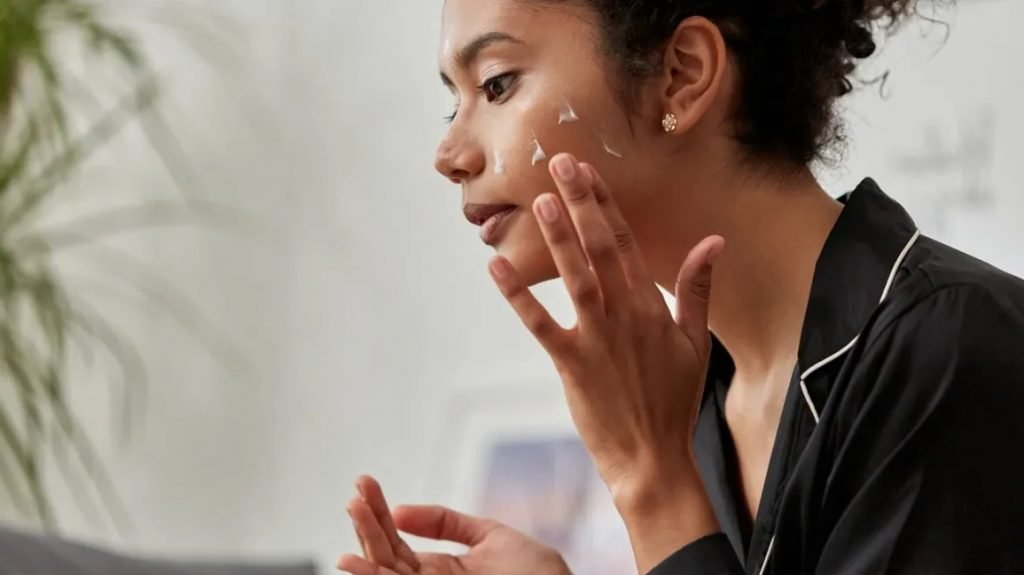Hyperpigmentation is a common skin concern that affects millions of people around the world. It is characterized by dark spots or patches on the skin, and it can be caused by a number of factors, including sun exposure, hormonal changes, and certain skin conditions. If you’re dealing with hyperpigmentation, there are a number of treatment available that can help improve the appearance of your skin.
Causes Of Hyperpigmentation

Hyperpigmentation is caused by an increase in the production of melanin, the pigment responsible for giving our skin its color. There are a number of factors that can trigger the production of excess melanin, including:
Sun exposure: One of the most common causes of hyperpigmentation is prolonged sun exposure. UV rays from the sun can damage the skin and trigger the production of melanin, leading to dark spots and patches.
Hormonal changes: Hormonal changes, such as those experienced during pregnancy or menopause, can also cause hyperpigmentation.
Certain skin conditions: Skin conditions like acne, eczema, and psoriasis can also cause hyperpigmentation. When the skin is damaged, the body produces more melanin to protect it, leading to dark spots and patches.
Genetics: Some people are simply more prone to hyperpigmentation due to their genetics.
Symptoms Of Hyperpigmentation
The most common symptom of hyperpigmentation is the appearance of dark spots or patches on the skin. These spots can range in size and color, and they may appear on any part of the body. In some cases, the spots may be raised or have a rough texture.
Some Common Treatment For Hyperpigmentation
Moisturizer

Everyone uses a moisturizer but few people know about the hidden advantage of using a moisturizer. A good quality product can help boost cell turnover with its ingredients like glycerin or hyaluronic acid, and maybe even retinol. Also, it can help restore the skin’s lipid or fat barrier which will keep new skin cells healthy as they replace the old ones. You should check your moisturizer to see whether it has the ingredients that can help treat hyperpigmentation and replace it with a quality moisturizer if it doesn’t contain the necessary ingredients.
Sun Protection

Keep a broad-spectrum sunscreen with a sun protection factor (SPF) of 30 or greater at home, if you are suffering from sun-induced hyperpigmentation. But SPF refers to protection from UVB short-wave rays only. You will need a product that contains Mexoryl, Parsol 1789, titanium dioxide, zinc oxide, or avobenzone for protection against UVA long-waive rays. Ideally, you should avoid the outdoors between 10 a.m. and 2 p.m., when the sun is strongest. Step out only when it is necessary and always wear a wide-brimmed hat to protect your head, as well as your face, ears, and neck.
Check OTC Whitening Treatments

Start treating the signs of hyperpigmentation as soon as they start appearing on your skin. You should know that it is easier to treat hyperpigmentation in the initial stages. In addition to using a moisturizer and taking sun protection, you can explore OTC whitening options like azelaic and glycolic acids, vitamin C, and retinoids. These ingredients inhibit tyrosinase responsible for the formation of skin-darkening melanin. While many of these OTC medicines could have a bleaching effect on your skin, you should avoid applying liquid bleach to your skin.
Prevent Bug Bites, Blackheads, Injuries

Every time you scratch a mosquito bite or squeeze a blackhead, you trigger inflammation that leads to the blackening of the skin. While scratching a mosquito bite is tempting and instantaneous, it is better to keep your skin safe from bug bites. Use effective mosquito repellants at home and cover all your hands and legs while going out to greener spaces where you fear mosquito bites. Similarly, you should look for a safer treatment for blackheads instead of squeezing them. These are small measures that can help keep your skin melanin free for a long time.
Take Care Of Your Skin

If you are asked to answer how you take care of your skin, you will list the brands whose skincare products you use. You believe that a branded cream or lotion is best suited for your skin. But little do you know that even branded products could trigger skin problems. Depending on your skin type and condition, you should use products that don’t sting or burn your skin. You should keep one thing in your mind is that irritation can worsen or trigger hyperpigmentation. Whether you are using an acne cream or any other product, you should make sure that doesn’t harm your skin in any way.
Get A Prescription Lotion

Together with taking the necessary precautions and OTC whitening solutions, you can keep your skin melanin free. But sometimes OTC treatments don’t give desired results. Or they could be too slow to stop hyperpigmentation. In this situation, you can consider taking a prescription lotion like hydroquinone that can be used alone or with other lighteners. Or your dermatologist could prescribe topical cortisone cream or tretinoin, a type of synthetic vitamin A. But you should allow your OTC whitening treatment to give results before switching to a prescription drug to treat hyperpigmentation. Also, use a drug only under the supervision of a dermatologist.
High-Tech Options

Sometimes topical solutions don’t give desired results and there could be a variety of reasons for this problem. But you shouldn’t feel discouraged with topical treatment failing in treating your hyperpigmentation problem as there are high-tech options available to stop skin blackening. For example, you can go for a chemical peel, microdermabrasion, dermabrasion, or a laser resurfacing procedure. But it is only an experienced dermatologist that can suggest the right high-tech option after examining your skin type and condition.
Disclaimer: The above information is for educational purposes only and the readers are advised to consult experienced dermatologists for treating hyperpigmentation.